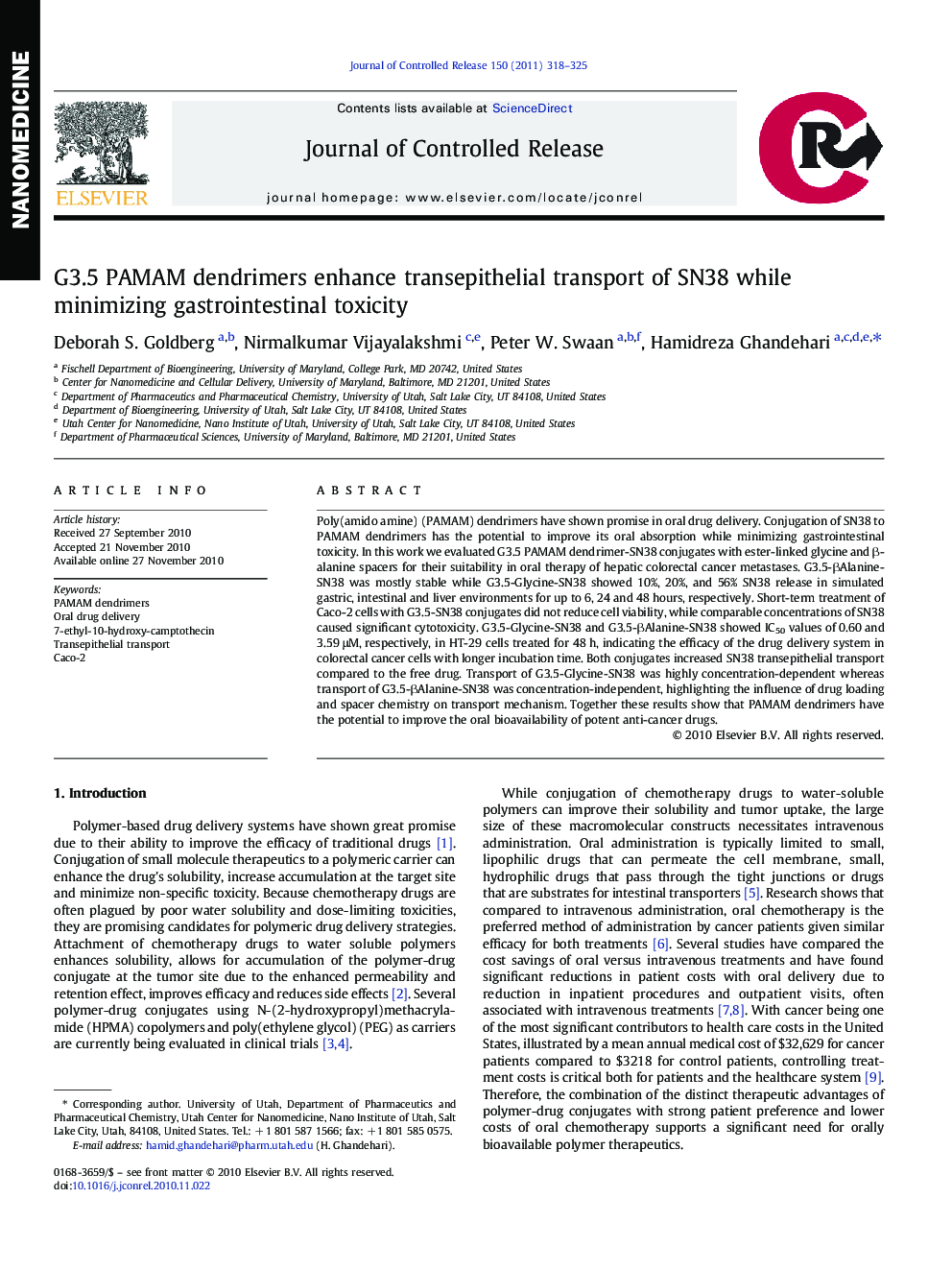| Article ID | Journal | Published Year | Pages | File Type |
|---|---|---|---|---|
| 1425308 | Journal of Controlled Release | 2011 | 8 Pages |
Poly(amido amine) (PAMAM) dendrimers have shown promise in oral drug delivery. Conjugation of SN38 to PAMAM dendrimers has the potential to improve its oral absorption while minimizing gastrointestinal toxicity. In this work we evaluated G3.5 PAMAM dendrimer-SN38 conjugates with ester-linked glycine and β-alanine spacers for their suitability in oral therapy of hepatic colorectal cancer metastases. G3.5-βAlanine-SN38 was mostly stable while G3.5-Glycine-SN38 showed 10%, 20%, and 56% SN38 release in simulated gastric, intestinal and liver environments for up to 6, 24 and 48 hours, respectively. Short-term treatment of Caco-2 cells with G3.5-SN38 conjugates did not reduce cell viability, while comparable concentrations of SN38 caused significant cytotoxicity. G3.5-Glycine-SN38 and G3.5-βAlanine-SN38 showed IC50 values of 0.60 and 3.59 μM, respectively, in HT-29 cells treated for 48 h, indicating the efficacy of the drug delivery system in colorectal cancer cells with longer incubation time. Both conjugates increased SN38 transepithelial transport compared to the free drug. Transport of G3.5-Glycine-SN38 was highly concentration-dependent whereas transport of G3.5-βAlanine-SN38 was concentration-independent, highlighting the influence of drug loading and spacer chemistry on transport mechanism. Together these results show that PAMAM dendrimers have the potential to improve the oral bioavailability of potent anti-cancer drugs.
Graphical AbstractFigure optionsDownload full-size imageDownload as PowerPoint slide
